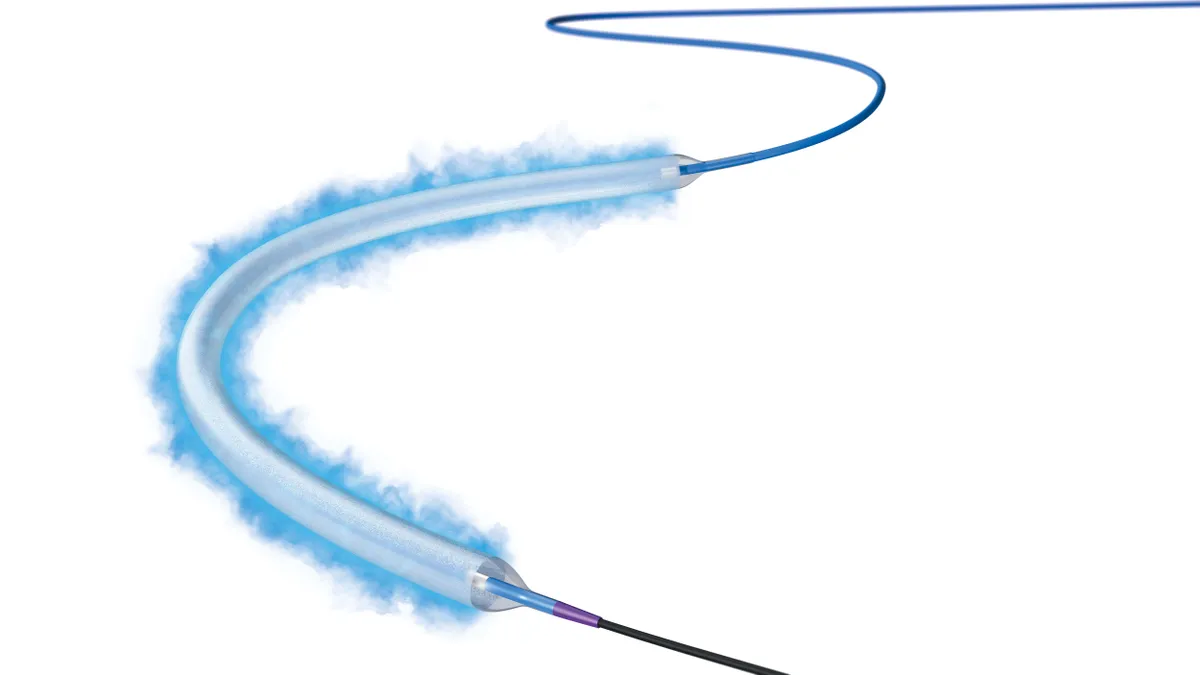Dive Brief:
-
Boston Scientific has received FDA approval for a paclitaxel-coated balloon to treat peripheral artery disease, the medtech giant said Monday. The device, dubbed Ranger, is in part designed to minimize systemic exposure to the controversial drug.
-
The potential dangers of paclitaxel, used to help prevent restenosis in arteries, became a focal point of the drug-coated balloon (DCB) market in 2018 when a meta-analysis linked devices coated with the drug to increased later risk of death. A series of studies have failed to replicate the finding, leading Boston Scientific to identify the recovery of paclitaxel-coated devices as a tailwind for a business suppressed by the meta-analysis.
- Yet, with regulators around the world pushing for labeling changes to reflect the risks seen in the meta-analysis, there may remain an opportunity for devices designed to mitigate the threat. Boston Scientific is positioning the Ranger DCB for that opportunity.
Dive Insight:
An FDA warning to healthcare providers in early 2019 about a late mortality signal with paclitaxel-coated devices rocked the sector. Manufacturers of DCBs and paclitaxel-eluting stents were required to update their labels to reflect that signal following an FDA advisory committee meeting later in the year.
But since then, companies such as Boston Scientific, Cook Medical and Medtronic have released postmarket data that paint their devices in a safer light.
The broadly positive turn for paclitaxel continued into this year. In June, Philips shared four-year results from a randomized controlled trial of its Stellarex DCB. The trial joined the list of studies to find the DCB posed no greater risk of death in peripheral artery disease patients than percutaneous transluminal angioplasty.
Around the same time, researchers from not-for-profit vascular medicine and intervention group VIVA Physicians published an analysis of outcomes in 16,796 Optum Medicare Advantage patients treated with paclitaxel-coated or uncoated devices and followed for several years. All-cause mortality was 45.8% in the paclitaxel population compared to 43.2% in the uncoated cohort, leading researchers to conclude the finding "contributes to a growing body of real-world data finding no association between drug-eluting devices and harm in routine clinical practice."
The Medicare and Philips data were published the month after physicians on the International DCB Consensus Group updated their guidelines on drug-coated balloons for coronary artery disease. Even so, the physicians already had enough information to downplay the mortality risk, noting “there has been no concern for the use of paclitaxel-coated balloons in the coronary vasculature on the basis of registry studies or randomized trials” and citing two positive meta-analyses.
The approval of Ranger DCB may position Boston Scientific to grow sales even if patients and physicians remain wary of paclitaxel-coated devices. Boston Scientific said the device, which received a CE mark in 2014, is designed to limit systemic drug exposure. In an investigator-sponsored trial, patients who received Ranger DCB had a drug dose density of 2 µg/mm2, compared to 3.5 µg/mm2 in their peers treated with Medtronic’s IN.PACT Admiral DCB.
CEO Mike Mahoney argued to analysts on an earnings call last week that recovery of paclitaxel devices, coupled with growth of its stroke risk reduction implant Watchman, "neutralize" a delay to one of its TAVR devices announced at TCT.












